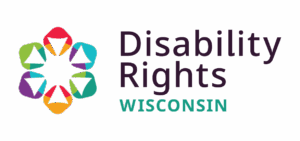
People with disabilities deserve access to the public benefits that they are entitled to by law. Access to public benefits such as health insurance programs and Social Security Disability promotes the dignity, independence, and accessibility of people with disabilities in Wisconsin. Navigating such programs—including Medicare and Medicaid—can be overwhelming and confusing. Without the expertise of a specialist, people with disabilities and their families may be missing out on programs or opportunities to which they are entitled.
Public benefits that individuals with disabilities may be eligible for:
Social Security Disability Insurance (SSDI)
Pays benefits to people with disabilities who have worked and paid Social Security taxes on their earnings, and to certain dependents of a worker who has retired, become disabled, or died. Eligibility, and amount of benefits, depends on how long the insured person worked, how much money s/he earned, and how many people are being paid from his/her account. There are no income or resource limits, but earnings from work may result in loss of disability-based benefits. Eligibility for SSDI based on disability will make a person eligible for Medicare after a waiting period of two years.
Supplemental Security Income (SSI)
Pays benefits to people with disabilities whose income and resources are below set limits. Sometimes, resources and income of parents and spouses are counted. The person or family does not have to have a work history. Eligibility for SSI will make a person eligible for Medicaid which can be retroactive for up to 90 days. A person eligible for SSI in Wisconsin may receive a State of Wisconsin SSI Supplement. This benefit is administered by the state under state laws and policies.
Medicaid and BadgerCare
Medicaid and BadgerCare are comprehensive health care insurance programs available to certain low-income persons with limited assets. Medicaid is also available to individuals whose income is reduced to the low-income level when medical expenses are deducted from their gross income. These programs pay service providers for medical and rehabilitative services, drugs and equipment which they have provided to a Medicaid or BadgerCare enrollee. Both programs are administered by the state and funded by federal and state dollars.
Do you have questions or need help with Medicaid? Our SSI Managed Care External Advocacy Project may be able to help you.
Medicare
Medicare is the national health insurance program for all Social Security recipients who are either over age 65 or permanently disabled. Individuals receiving Railroad Retirement benefits and people with end-stage renal disease are also eligible for Medicare coverage.
Medicare is not a “welfare” program. Eligibility is not based on financial need. Procedures should not vary significantly from state to state and coverage is similar to that provided by private insurance companies: it pays a portion of medical costs. Often, deductibles and coinsurance (partial payment of initial and subsequent costs) are required of the beneficiary (person receiving medical services).
Do you have questions or need help with Medicare Part D? Our free Disability Drug Benefit Helpline may be able to help you.
Medicaid Waiver
Medicaid (Medical Assistance, MA) Waiver programs provide funding through county Departments of Human Services (also called Departments of Community Programs or Unified Services Boards) for community services to qualified persons with developmental disabilities, traumatic brain injuries, physical disabilities, or persons age 65 or over who meet the eligibility requirements for institutional care. The MA waivers are composed of an actual application to waive federal rules, and require approval from the Federal Health Care Financing Administration (HCFA). The funding is allocated for each eligible individual through the county agency.
How SSA Evaluates Disability
The definition of disability under Social Security is different from other programs. Social Security pays only for total disability. No benefits are payable for partial disability or for short-term disability. Please see the SSA Disability Planner for more qualification information.
Strategies
Disability Rights Wisconsin assists persons with disabilities with public benefits through many of our programs.
